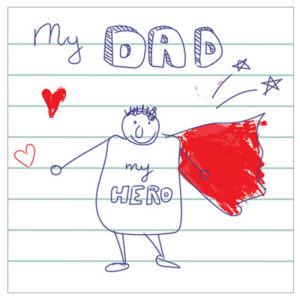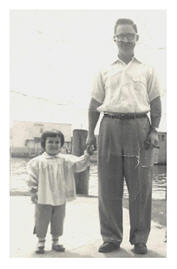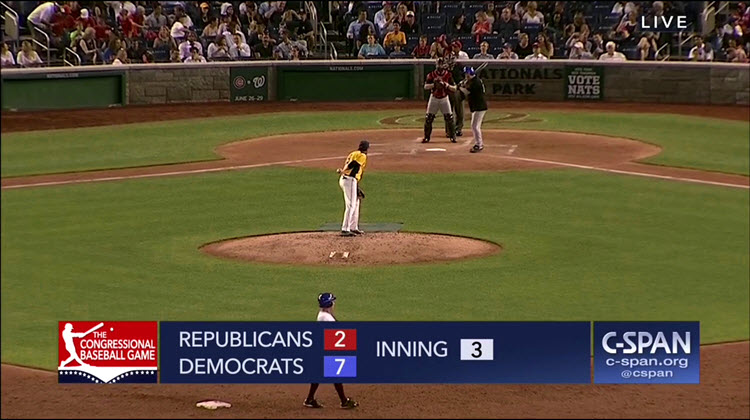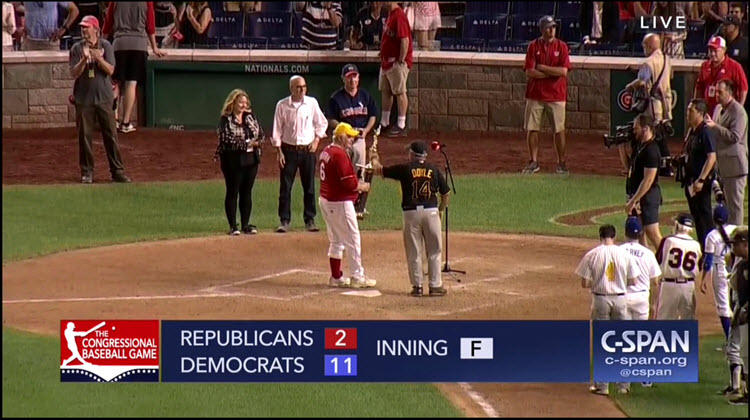Baseball has never been my game, but my dad loved it. My dad loved all sports, and while golf was his personal favorite, I retain indelible memories of his viewing two events simultaneously on two black and white televisions — while pouring through the sports pages at the same time.
 Now, I may have ventured to Boston’s Fenway Park once on a date, but other than being interested in the guy I was with, I couldn’t get into the action on the field. And I say that despite enthusiasm as a kid over Carl Yastrzemski, and my adulation, just like that of every other kid I knew. Yaz was a “hero” in 1967; kids have heroes of all sorts, and hero worship is part of our experience of growing up.
Now, I may have ventured to Boston’s Fenway Park once on a date, but other than being interested in the guy I was with, I couldn’t get into the action on the field. And I say that despite enthusiasm as a kid over Carl Yastrzemski, and my adulation, just like that of every other kid I knew. Yaz was a “hero” in 1967; kids have heroes of all sorts, and hero worship is part of our experience of growing up.
Appreciating or lauding a hero is different from love of the game. And perceiving our fathers as heroes, certainly when we’re young, is common between dads and their little boys. Possibly between fathers and daughters as well.
Heroes seem to be in short supply in this country at the moment — particularly in public life and public discourse. Yet most of us would agree that we saw heroism earlier this week in two Capitol police officers as they put their lives on the line for our elected representatives.
And I would be remiss if I didn’t mention the courage of our armed forces and police officers who put their lives on the line every day — far beyond the spotlight and too easily beyond our consciousness.
As for those heroes in athletics, as I grew older, my feelings about sports evolved. Celtics at the old Boston Garden? That I loved. NBA basketball was fast, smart, and to me, truly a team sport, which didn’t mean there weren’t towering figures with exceptional individual accomplishments. But players like Larry Bird, Robert Parish and Dennis Johnson knew how to work together. “Star” and team player were not mutually exclusive concepts. But then, the years I went to games at the Garden came well before social media transformed us all into a “brand,” promoting ourselves in a virtual universe.
All the more reason for real examples in the real world of personal connection, individual achievements, and team “wins” — that are not mutually exclusive.
Last evening, I watched a ballgame on television. (Thank you, C-SPAN!) I thoroughly enjoyed propping myself on comfy pillows in bed, and viewing the annual Congressional baseball game, which I never knew existed before this week.
I was surprised at how much fun it was to watch!
I was extremely moved when one of the two Capitol police officers involved in the shooting threw out the first ball, I couldn’t have cared less which team won, and I was tickled watching middle aged guys with paunches putting themselves out at bat and running a base or two. And, seeing the two women on the Democrat’s team was another reminder of a sort of divide that still demands our time and attention in this country.
The broadcast was also a colorful way to learn more about our representatives on both sides of the aisle, as the commentator provided information on each player, his or her district, not to mention committees on which they serve and other “stats.” The mix of sports and politics was delightful, and to this spectator, even more so since the competition was fierce but not cut throat. And, the event was capped off by the winning team presenting the trophy to the other team to be placed in Congressman Steve Scalise’s office.
Representative Scalise, as I am certain you know, is the Republican congressman from Louisiana who remains in critical condition in the hospital after the June 14 shooting.
Why did I tune into this charity game?
More importantly, why did I find it relaxing and uplifting?
Maybe it’s the mood I was in; no doubt I consumed too much news over the preceding 36 hours. No doubt because I find myself dissatisfied with most media, regardless of political stance, as toxic tweets are made all the more virulent when that is the only topic of conversation on a news broadcast, and rushed reporting leads to sound-bite-based conclusions built on partisan positions.
And I do not exempt myself from falling into this same trap.
Our challenge extends beyond the relative coverage of messaging versus substantive issues. It is also about diction — and just how inflammatory it becomes. Expressions like “refuse to answer” (rather than “deny”) or “attack” (rather than “disagree”) may seem like subtle language differences, but they ratchet up the temperature unnecessarily — and may mischaracterize circumstances and intention.
Adults — especially those who make their living in journalism — would be wise to revisit the definition of “integrity” and to choose their words accordingly. Likewise, the pundits, the politicians, and the rest of us preening and posturing in posts and shares.
I will also acknowledge this sad reality: The vitriolic tone so many of us have adopted in recent years — not only in social media, but in our own lives — has spread thoughtlessness and meanness like a contagion. This brings me back to the principles of playing by the “rules of the game” — a concept that was never a matter of dispute when I was growing up. Playing by the rules is honorable, honor matters, and if you don’t like the rules of the game then change them.
I might add that my dad also loved to debate. His arguments were never mean-spirited, did not willfully attack a person but rather the soundness of ideas. Of course, my father was of a different era, and I am approaching an age when I will soon be considered of a different era as well. But is there really any question — whatever your age — that the animus we find in public discourse today dehumanizes us and is counterproductive?
That must change. We must change.
Heroes?
We need them, now more than ever. I loved my dad, but he wasn’t around enough to be the hero I needed when I was young. I wish he had been; I could have used his humor, his unconditional love, his kindness. I could have used him, but I count my blessings that we got to know each other better at the end of his life. And knowing that he was a huge sports fan, appreciating both individual contributors and team efforts, were he still with us, I wonder what he would make of contemporary politics.
 Given that Father’s Day Weekend is upon us, I can’t help but miss my dad and think of him. And I will take this moment to highlight the obvious, which my dad exemplified: We are all better when we remember the fundamentals including the role of teamwork, the importance of fair competition, and the beauty of the game. We do seem to have forgotten about this last — the beauty of the game — our American experiment being precisely that.
Given that Father’s Day Weekend is upon us, I can’t help but miss my dad and think of him. And I will take this moment to highlight the obvious, which my dad exemplified: We are all better when we remember the fundamentals including the role of teamwork, the importance of fair competition, and the beauty of the game. We do seem to have forgotten about this last — the beauty of the game — our American experiment being precisely that.
I know we can do better.
Yup. I’ll cop to being sappy, sentimental, and old-school on this score.
On a slightly different note, I would like to point you to a number of gorgeous essays about fathers. The Father-Son Series, like the Mother-Daughter Series, explores the adult relationships we share with our parents. Written by men ranging in age from their thirties to their sixties, I think you will find these personal recollections poignant and powerful.
And if you enjoyed this post, please like and share on Facebook.
Congressional baseball images, screen captures from C-Span live broadcast.
You May Also Enjoy


Spot on!
Your discussion of heroes makes me think of an activity I always did back in the day with my grade nine English class. On the advice of a professional hero of mine who said that if I wanted to get to know my kids/students I should ask them who their heroes were… I designed this activity.
We all… me included, wrote down three of our heroes, and why we thought they were heroes. Then we “shared” and every hero and every criteria went up on the board. Then we began as a group to whittle the criteria down to five. This was great fun, took lots of debate, and some pretty cool thinking skills on the part of these 14 year olds. Then we applied the new and hopefully more worthwhile criteria to each hero. And it was amazing how many kids threw their personal heroes out the window and admitted that … okay they could play baseball really well, but that didn’t make them worthy of the title.
This was back in the nineties and many many kids had to admit that while they loved Kurt Cobain’s music, and he was a tragic figure, he just wasn’t a hero. I’ve always thought that was one of the best activities I ever did with kids.
Sigh. I wonder how many of those now 30++year olds remember that?